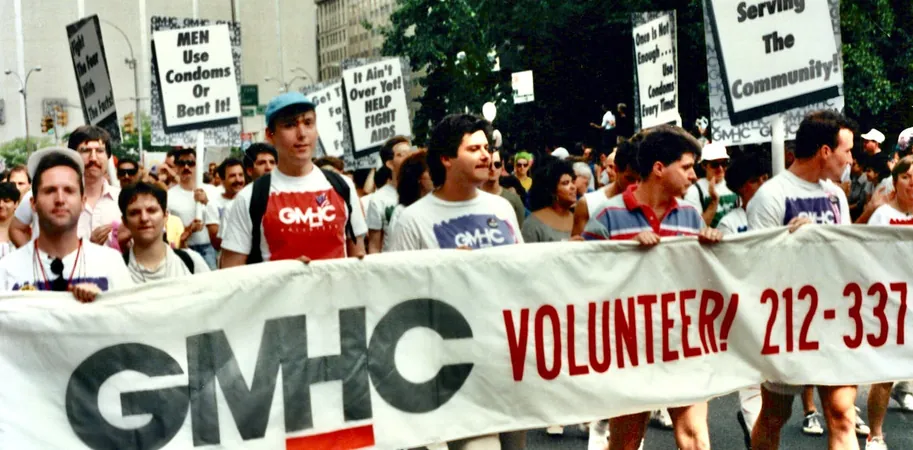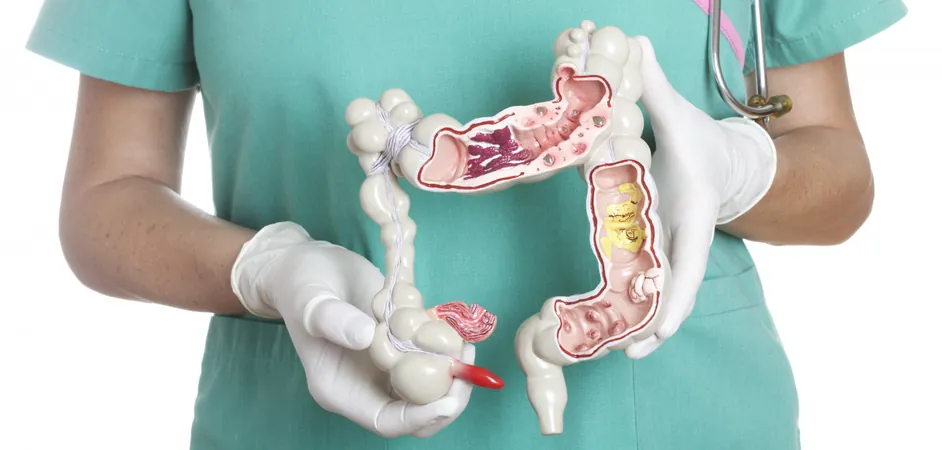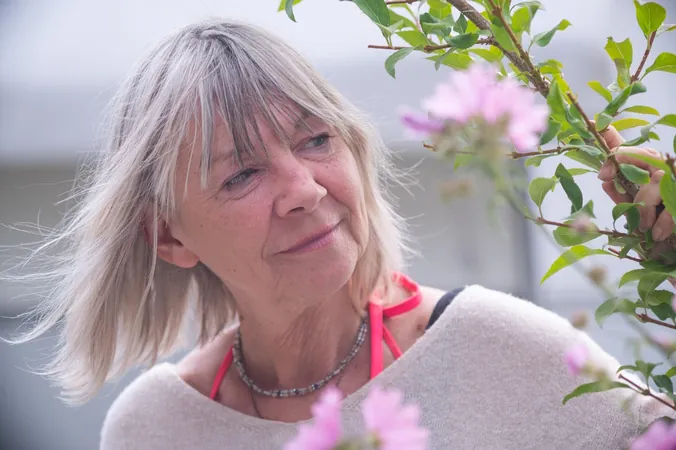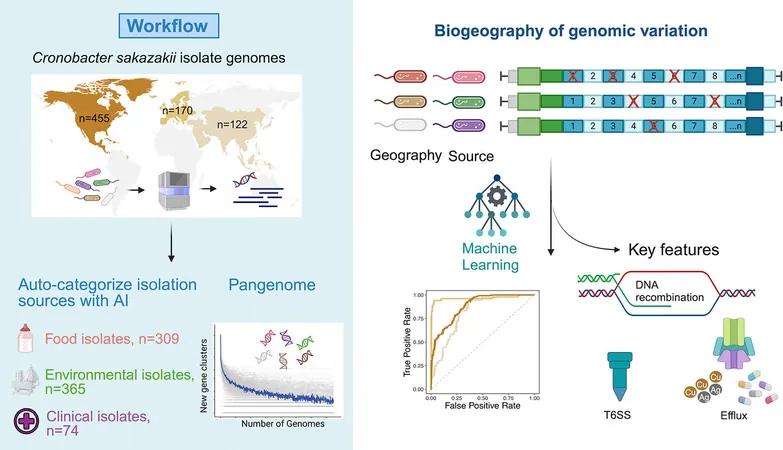
How Ordinary Heroes Battled the AIDS Crisis: A Lesson for Today
2025-06-18
Author: Jia
A Bold Response to a Crisis
The AIDS movement is a powerful testament to the resilience of ordinary individuals. From students and bartenders to teachers and newly out gay men, these everyday heroes, motivated by their own experiences with loss and urgency, stepped up when institutions failed them. With no formal training, they became the backbone of the fight against AIDS.
The Birth of Gay Men’s Health Crisis
In 1982, when Gay Men’s Health Crisis (GMHC) launched as the world’s first AIDS service organization, it was a lifeline for those affected by AIDS. Volunteers provided crucial education, physical support, and emotional care, driven by compassion amidst a society that largely turned its back.
The Stigma and Silence of the Era
During the early days of the epidemic, AIDS was wrongly dubbed a "gay plague," stigmatizing those affected. Families disowned their LGBTQ+ members, hospitals rejected patients, and some funeral homes refused to handle their remains. Meanwhile, officials like President Reagan and Sen. Jesse Helms failed to address the crisis, labeling people with AIDS as 'perverted human beings.'
Learning from the Past for Today’s Struggles
Fast forward to 2025, and history echoes itself. With the Trump administration cutting crucial funding for HIV research and LGBTQ+ protections, the stories from the AIDS crisis provide vital lessons in community resilience and innovation in the face of adversity.
Voices from the GMHC Oral History Project
Tim Sweeney, former GMHC executive director, vividly recalls the public’s inaction: "I think 26,000 people died before Reagan even bothered to utter the word 'AIDS.'" This perspective, among others gathered in the GMHC Stories Oral History Project, reveals how communities rallied to advocate for themselves when traditional support systems failed.
Creating Networks of Care
Without government support, queer New Yorkers and their allies improvised survival strategies. GMHC managed to mobilize over 1,000 volunteers, initiating programs like the 'buddy program,' offering essential emotional and practical support to those affected. Barriers were broken as community members learned to care for each other while also embracing their identities.
Cultural Resilience Amidst Crisis
Empowerment rooted in queer culture became crucial in combating the crisis. Embracing sex-positivity, GMHC's educational campaigns shattered stigmas, focusing instead on safe, healthy living within the LGBTQ+ community. Humor and authenticity played a critical role in sustaining morale as staff demonstrated resilience through laughter and compassion.
Challenges within the Movement
As GMHC grew, it faced internal struggles reflecting broader societal challenges. Founded predominantly by white gay men, the organization grappled with how to inclusively serve communities of color and women as the epidemic evolved. Addressing these disparities required grappling with biases and redirecting resources, a challenging endeavor they navigated with determination.
A Call to Action Today
Today, LGBTQ+ communities face new battles, including bans on trans healthcare and increasing violence against queer individuals. As funding for crucial programs dwindles, the questions of care, community, and solidarity resurface. How do we support each other amid political turmoil and public health crises?
The Legacy of GMHC: A Blueprint for Healing
The legacy of GMHC teaches that mutual aid is potent, grief can blend with joy, and resilience thrives through shared vulnerability. The very principles that guided those during the AIDS crisis serve as a beacon today, urging us to foster connections, advocate for justice, and directly address each other's needs.
Tim Sweeney encapsulates this spirit: “You’re just ordinary citizens doing extraordinary things.” Indeed, the lessons of history beckon us to take action, turning anguish into empowerment as we strive for a better tomorrow.






 Brasil (PT)
Brasil (PT)
 Canada (EN)
Canada (EN)
 Chile (ES)
Chile (ES)
 Česko (CS)
Česko (CS)
 대한민국 (KO)
대한민국 (KO)
 España (ES)
España (ES)
 France (FR)
France (FR)
 Hong Kong (EN)
Hong Kong (EN)
 Italia (IT)
Italia (IT)
 日本 (JA)
日本 (JA)
 Magyarország (HU)
Magyarország (HU)
 Norge (NO)
Norge (NO)
 Polska (PL)
Polska (PL)
 Schweiz (DE)
Schweiz (DE)
 Singapore (EN)
Singapore (EN)
 Sverige (SV)
Sverige (SV)
 Suomi (FI)
Suomi (FI)
 Türkiye (TR)
Türkiye (TR)
 الإمارات العربية المتحدة (AR)
الإمارات العربية المتحدة (AR)